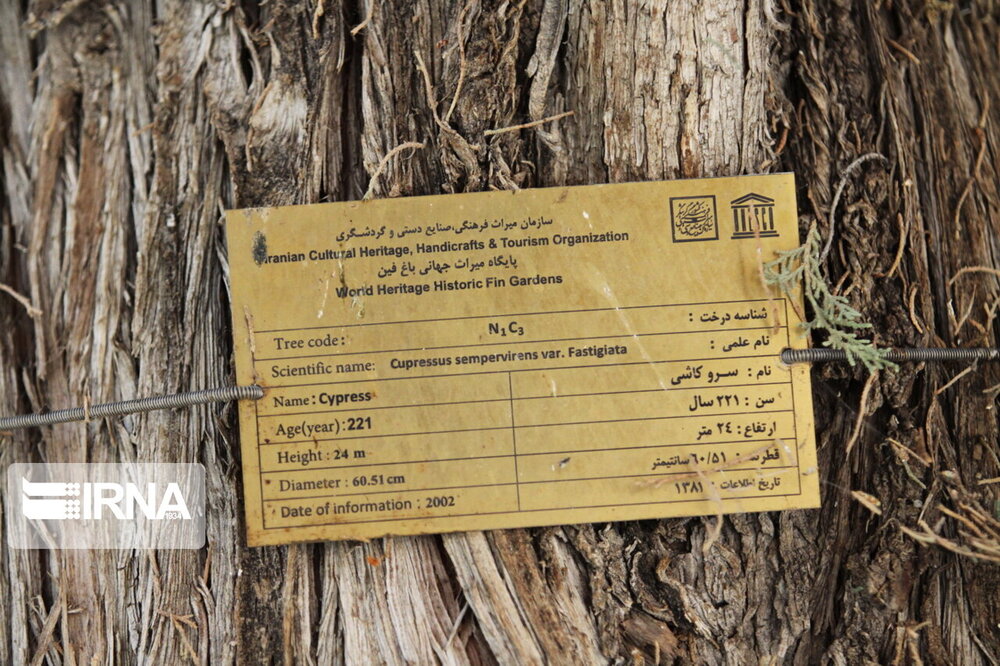Efforts made to conserve old trees in UNESCO garden

TEHRAN – A team of Iranian experts has finished work to help conserve old trees at the UNESCO-registered Fin Garden in central Iran.
“A budget of 17 billion rials ($57,000) has been allocated to the preservation project and organizing the green space of the historical garden,” IRNA quoted a local tourism official as saying on Wednesday.
A combination of seasonal winds and dust and the location of the complex near the Kashan-Qom-Isfahan highway cause blockages to plant openings and disrupt the trees’ health, Zohreh Hantei said.
As part of the project, one scientific and principled action was to wash old and tall trees, which is necessary every year and on several occasions using water and sometimes organic soap, the official explained.
The history of Fin Garden in its current shape dates back to the time of Shah Abbas I who was the 5th Safavid king of Iran and reigned from 1588 to 1629. However, some sources say the original premises date far back in time.
Due to the fact that the oasis city of Kashan lies adjacent to the central Iranian desert, water is scarce, however, inside the garden, water superabundantly flows through a series of turquoise-colored pools and fountains.
The elevated cedars inside the garden that are up to 500 years old contribute to the scenic landscape while the profusion of orange trees permeate pleasant fragrance when the trees are in blossom.
Fin Garden together with eight others across the country have been inscribed on the UNESCO World Heritage list under the title of “The Persian Garden.”
The genuine concept of the Persian Garden that is deeply rooted in time interweaves natural elements with manmade components to embody an idea of creating a paradise on Earth by the means of artistic, philosophical, figurative, and religious notions.
The UNESCO website asserts that the flawless design of the Persian Garden, along with its ability to respond to extreme climatic conditions, is the result of an inspired and intelligent application of different fields of knowledge, i.e. technology, water management and engineering, architecture, botany, and agriculture.
ABU/AFM

Leave a Comment